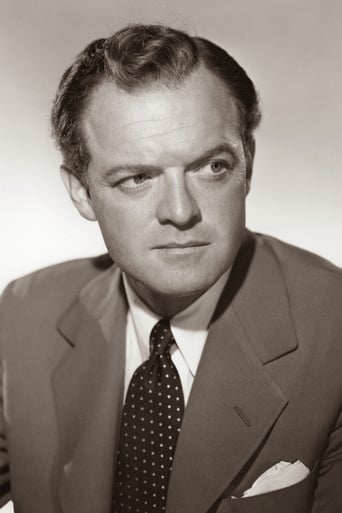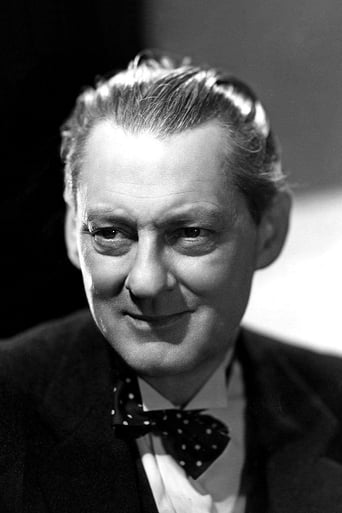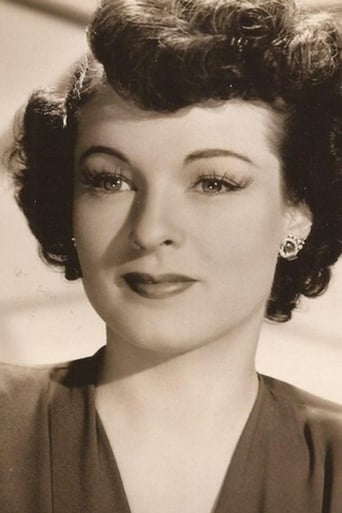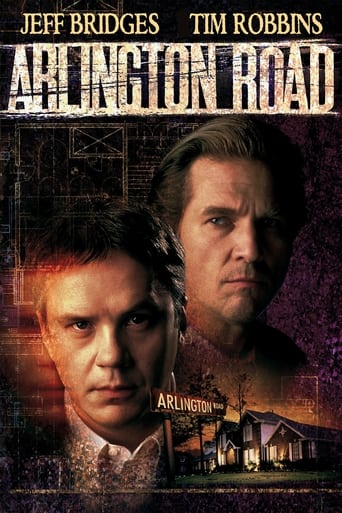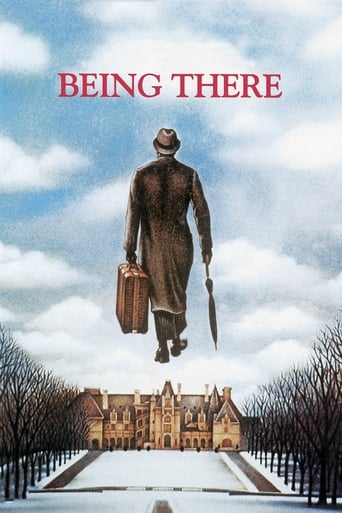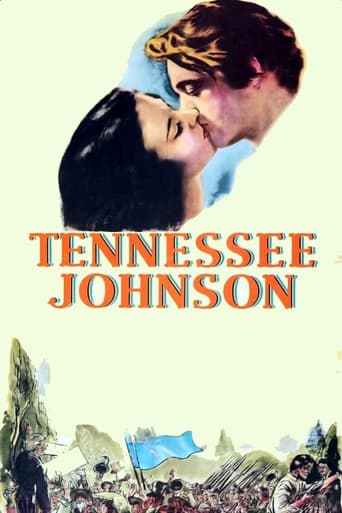
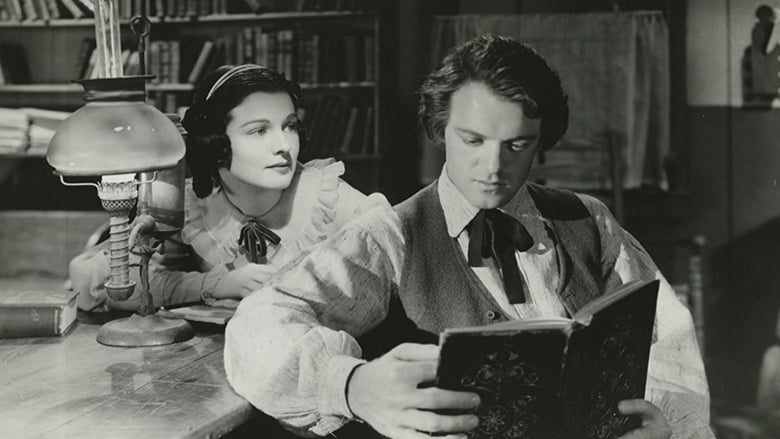
Tennessee Johnson (1942)
The tumultuous presidency of 19th-president Andrew Johnson is chronicled in this biopic. The story begins with Johnson's boyhood and covers his early life. During the Civil War, Johnson stays a staunch Unionist and upon Lincoln's reelection in 1864, becomes his Vice President. After Lincoln's assassination, Johnson becomes the President and became the first U.S. president ever to be impeached.
Watch Trailer
Cast


Similar titles
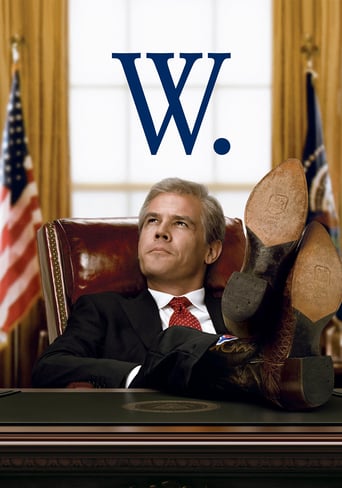
Reviews
The subject of this biopic is Andrew Johnson, the President who succeeded Abraham Lincoln, the only American President who had no formal education whatsoever (and yet was a voracious reader), the only southern member of Congress who did not walk out when Secession arrived, the man who attempted to implement "presidential reconstruction" as outlined by Lincoln at the cabinet meeting on the last day of his life, and the first President to be impeached (the pretext being the ability of the President to dismiss a Cabinet appointee, a question later resolved by the Supreme Court in Johnson's favor). What dramatic material! But try to find a DVD of this movie! Johnson is condemned for his bluntness and, above all, for his racial views, which happened to be fairly similar to those of Lincoln. His great sin, however, was in considering the Constitution to be indeed the governing law of the land. In our current time he is condemned. The censors are determining what we can see.
I've never been a fan of Van Heflin. But I must admit that he was excellent in this film portraying President Andrew Johnson. I believe this film to be underrated. Yes, it is a biopic, with all its inaccuracies, but unlike some biopics of the time, it is extremely well done.The opening of a shackled Johnson escapee from bondage as a tailor apprentice is dramatic, and gives Marjorie Main some good scenes. It goes on to show the prejudice of of how landowners attempted to control the American population. Then, suddenly, there's a big gap in the film of about 20 years.The depiction of the bitter tensions boiling over in the U.S. Senate as the Civil War approaches is dramatic, and the set itself is impressive.Lionel Barrymore plays his role -- of Thaddeus Stevens -- to the hilt...very much like his role in "It's A Wonderful Life". And the Barrymore part really comes to life as the film enters the phase of the story regarding Johnson's impeachment, which is handled quite well.This is an interesting biopic, well done, with a fine performance by Van Heflin.
I doubt if a film made in 2004 or after about Andrew Johnson would be as kind as this 1943 film. Johnson did support the North in the Civil War (he was the only Southern Senator to remain in the U.S. Government during the war, and would be appointed Governor of that portion of Tennessee from 1863 - 64). Lincoln, in order to have a strong National ticket in her 1864 election chose Johnson (a Democrat)as his running mate. So Johnson became Vice President. And then John Wilkes Booth shot Lincoln, and Johnson became President.Johnson was illiterate, until his wife taught him to read and write. He educated himself, and rose in the legal and political world of Tennessee (and then the nation). But he was a piece of "po' white trash", and remained so with all it's cultural baggage. He supported the North because he (rightly) distrusted the Southern plantation aristocracy (epitomized by Jefferson Davis). However - he hated slaves and free Black people. Hence his willingness to be soft on the South. Lincoln would have been soft too, but Lincoln had great gifts at managing his adversaries and probably could have arranged a compromise. Johnson was pig-headed. He antagonized the Radical Republicans controlling Congress. They waited for him to make a mistake, and he did (technically he violated the Tenure of Office Act, by firing Secretary of War Stanton without getting Congressional permission - this act was declared unconstitutional in the 1880s). Then followed his impeachment and the saving of his skin by seven Republican Senators who voted not to remove him. And those men all lost their Senatorial seats.In 1943 Johnson was considered a hero, for saving the Executive Branch from becoming a rubber stamp for Congress. Actually, there was nothing to show that some Radical Republican President could not have restored power to the Executive Branch if Johnson had been removed. He gets high grades for his grit and courage, but his pig-headed stupidity and racism sink his historical rating. Still Van Heflin, Lionel Barrymore, and the other actors (like Charles Dingle) make the film interesting and enjoyable enough. Good film making but mixed history. Two final points: Edmond Ross was in good health when he voted, but James W. Grimes of Iowa also voted for acquittal, and he had a paralytic stroke a few weeks earlier (he died within a year). Second: Andrew Johnson is the second Vice President of the name Johnson (and Lyndon Johnson the third Veep). The first was Martin Van Buren's Vice President, Richard Mentor Johnson of Kentucky, whose career as a politician might make a diverting comedy.
When I showed this movie to a Civil War specialist, he said it was almost comedic because of the many historical errors. For example, Johnson actually stayed away from the Senate Trial. In the movie, however, he gave a wonderful speech in his own defense. Also, the Senate President Pro Tempore, next in line to be President, was Benjamin Wade. In the film, however, he was James Waters. In reality, Senator Edmond Ross, who was healthy, cast the acquitting vote. In the movie, however, a dying senator named Huyler did this."Tennessee Johnson" canonizes Andrew Johnson and demonizes Thaddeus Stevens. I prefer a more nuanced interpretation of history, for I find good and bad in both men. Ambiguity was not the order of the day (1943), however. Instead, the film reflects the dominant historical interpretation of the day--the Dunning Thesis.FYI, I hold a M.A. in American History.


